Search Definitions
Browse Content (p. 51)

Definition
Edo Castle
Edo Castle was a large castle built by the Tokugawa family in 17th-century Japan. It served as their seat of government for more than 260 years. After the Meiji Restoration of 1868, Edo became the capital of Japan and was renamed Tokyo. Edo...
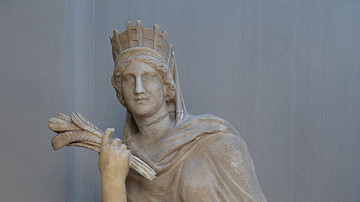
Definition
Tyche
In Greek mythology, Tyche is the goddess and personification of good luck, chance, and fortune. Tyche's popularity grew after the Classical period when many cities and officials across the Greek world and the Mediterranean adopted her as...

Definition
Cuneiform
Cuneiform is a system of writing first developed by the ancient Sumerians of Mesopotamia c. 3500 BCE. It is considered the most significant among the many cultural contributions of the Sumerians and the greatest among those of the Sumerian...

Definition
God
God' is the common word for the identity of a higher being in the universe beyond our world, the creator of all known existence, and who rules in conjunction with lower gradients of divinity (angels). In Greek, theikos ("divine") meant to...
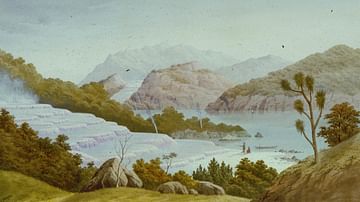
Definition
Pink and White Terraces of New Zealand
The cascading geothermal pink and white terraces of Aotearoa New Zealand were often referred to internationally and within New Zealand as the eighth wonder of the world. They were a famous tourist attraction in the 19th century until the...
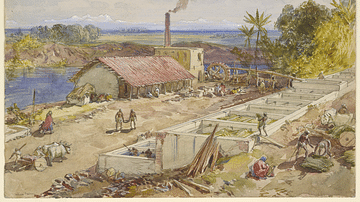
Definition
Indigo Revolt
The Indigo Revolt (aka Indigo Riots or Blue Mutiny) of 1859-60 in Bengal, India, involved indigo growers going on strike in protest at working conditions and pay. The subsequent violence was aimed at exploitative European plantation owners...
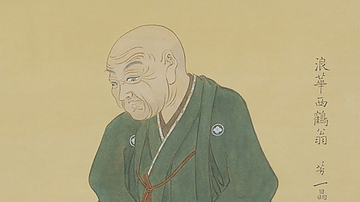
Definition
Ihara Saikaku
Ihara Saikaku (1642-1693) was a Japanese poet and novelist who played a leading role in creating the so-called ‘floating world’ (ukiyo-zoshi) genre of popular literature in the 17th century. His work was significant because, in terms of both...
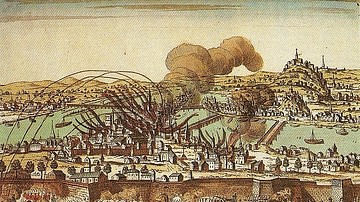
Definition
Revolt of Lyon
The Revolt of Lyon against the rule of the National Convention was a counter-revolutionary rebellion that played a role in both the Federalist Revolts and the Reign of Terror during the period of the French Revolution (1789-1799). Beginning...

Definition
Circe
Circe (also spelt Kirké) is a powerful sorceress and goddess in Greek mythology with an exceptional talent for mixing drugs. She was the daughter of the sun god Helios and the Oceanid Perseis. Circe's home was found on the wooded island of...

Definition
Lycurgus
Lycurgus is considered the semi-mythical founder of classical Sparta and responsible for all of the city-state’s laws as well as its military and political institutions. He became better known to generations of Spartans as the lawgiver. He...